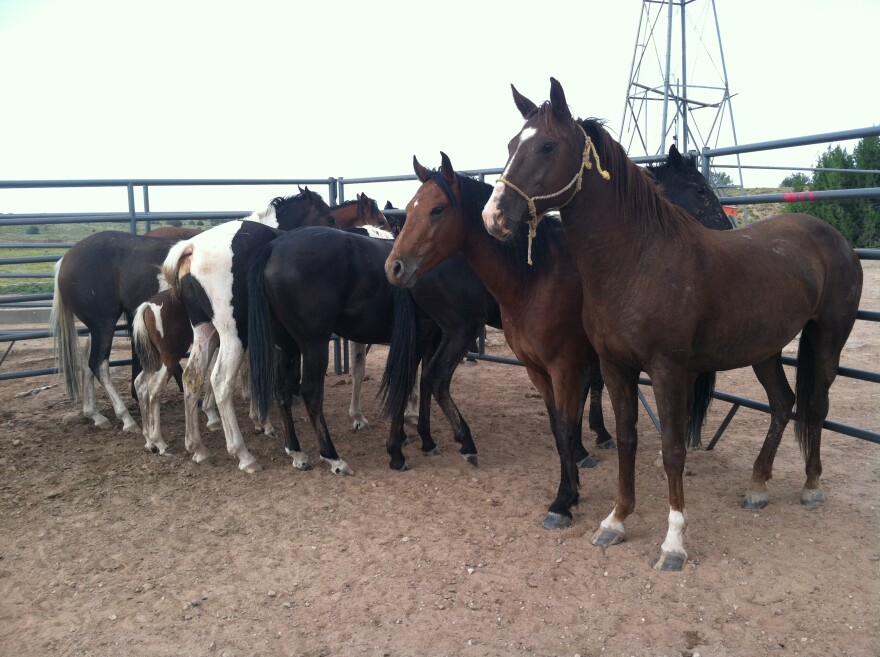Recently a federal appeals court issued an emergency injunction against the U-S Department of Agriculture that halts all inspections at domestic horse slaughter plants.
The move effectively freezes the opening of the Roswell Valley Meat Company in Southern New Mexico as well as a processing plant in Missouri that was set to open its doors during the first week of November.
Earlier this year the Humane Society and other groups sued the USDA, citing a lack of environmental oversight at the plants. Human Society President Wayne Pacelle says horses are companion animals.
"No one is logically suggesting that we round up the unwanted dogs and cats, set up a slaughter plant in New Mexico or Colorado, and then ship the meat to some far off country where there may be a small taste for dog meat," says Pacelle. "That would be ludicrous."
The court will hear briefs in this ongoing legal battle over the next few days. However, even if the plants are allowed to open, Congress is considering a law that would defund USDA inspection of horse slaughterhouses.
But that doesn't mean that horses haven't been routinely slaughtered in this country for export oversees through 2006. At that point there were three large Belgian-owned slaughter plants in the US. Due to a change in legislation, those plants were forced to shutter their doors in 2007.
Over the past few years a handful of facilities across the country have tried to revivify the domestic horse-slaughter practice. Although slaughterhouses haven't reopened on US soil yet, that doesn't mean that horses haven't been exported for slaughter beyond our borders. Most of those horses end up at EU regulated plants in Mexico and Canada before the meat is shipped to Europe and Asia where the lean, low cholesterol food is a staple in some supermarkets.
Horses in the US are not raised or medicated during their lifetime with the intent of one day becoming human food, so many of the the animals have often been dosed with medications that are banned by the FDA for use at any time during the lifespan of food animals.
Check out this article for a detailed history of horse slaughter legislation in the U.S.
Since 2012, there have been a few developments.
2013:
*The Safeguard American Food Exports Act is introduced into Congress. If passed, the Act will declare horse meat unsafe and ban the sale once and for all of horse slaughter as well as horse meat for human consumption in the United States.
*The White House releases a budget proposal for 2014 that would once again prohibit federal funding of horse meat inspections.
Correction and Editor's Note: This story originally reported incorrectly that people in the United States stopped eating horse meat "centuries ago." We apologize for the error. In addition, multiple timeline entries from an article on HorseChannel.com were published here without proper attribution. We apologize for this and have taken steps to ensure proper attribution in all KUNM news stories through trainings and increased editorial oversight. Questions? Please contact News Director Elaine Baumgartel.



